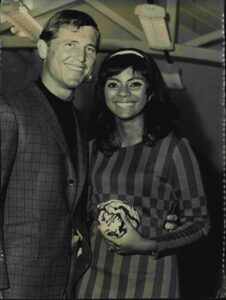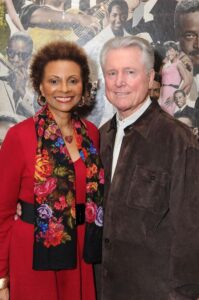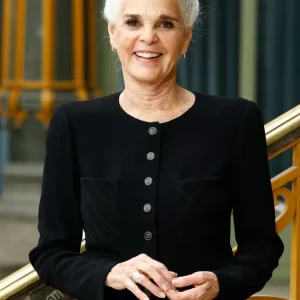American actress and singer Leslie Uggams started off in her career quite early. She became the first African American individual to participate as a series regular on a variety show when she was just six years old, on Mitch Miller’s “Sing Along With Mitch,” in 1951. Probably the most well-known part that Uggams has played is that of Kizzy Reynolds in the popular television series “Roots,” for which she received nominations for both an Emmy and a Golden Globe.
Uggams rose to prominence on Broadway in the much lauded musical “Hallelujah, Baby!” Her career was launched when this performance brought her a Tony Award and a Theatre World Award for Best Actress in a Musical. With parts like in August Wilson’s “King Hedley II” in 2001, which won her another Tony Award nomination, she carried on her remarkable stage career.
It was at the Professional Children’s School of New York that Uggams met Grahame Pratt, her future husband. Pratt had to go back to Australia, so they were briefly apart when they fell in love. After their later reunion, Pratt took over as Uggams’ manager. Considering that interracial marriage was still forbidden in various areas of the US until 1967, they made a bold decision when they got married in 1965. Danielle was born in 1970 and Justice in 1976, the couple was blessed with two children.
For simply being in love, Uggams and Pratt endured hardships and hate letters for almost 60 years of marriage. Discover further details about their trip and long-lasting relationship by reading on.

Leslie Uggams was reared in a caring and encouraging home after being born in Harlem, New York, on May 25, 1943. “They were glad to keep me busy,” Uggams remarked of her folks. Considering that our neighborhood was rough. And their goal was to keep me motivated and protected. I so took every class imaginable.
Early on, Uggams performed at the Apollo Theater, where she shared the stage with renowned performers like Ella Fitzgerald and Dinah Washington. All of them, I watched. You were seeing everything on and off the stage, so it was the best school, she said.
Her debut was with “Sing Along With Mitch,” where her weekly appearances made her a household celebrity. It was the first weekday national television appearance by an African American, she said. The sponsors of the show and NBC supported her even though Southern stations first opposed it. She’s going be on, she’s a member of the family, Miller insisted.
Yes, I was, Uggams replied when questioned about the importance of her ground-breaking performance. And I gladly accepted that task. You could never screw up. There was no way you could have scandal. Though I knew I was carrying my race on my shoulders, which I enthusiastically wanted to do, it was a lot of pressure.

Though he did not have as much celebrity as Uggams, Grahame Pratt, who was born in Australia on November 13, 1936, did have a few parts in television series and films in the 1960s and 1970s. Among these was his part in the catastrophe film “Skyjacked” from 1972.
Their encounter at the Chequers Club, a famous location in Sydney, Australia, in the 1960s was almost accidental. They clicked right away when Pratt, showing some liquid bravery, invited Uggams to join his company. Their paths briefly parted when Uggams went back to the United States, but a year later they were back together.
Time has not broken the link between Uggams and Pratt. In 2018 Uggams told People magazine, “He’s smart and witty and fearless.” They never wavered in spite of their differences. “He had never dated a Black woman before,” Uggams said. Since their five-month engagement, they have been happily married for almost sixty years.
Things weren’t always easy going. “Now I don’t wanna hear any problems, I’m gonna bring a Black woman home,” Pratt wrote his parents in a letter before presenting Uggams to them.
Pratt’s mother was only concerned, to their relief, with the question, “Is she Presbyterian?” which Uggams found sarcastically funny because she was.
In spite of everything, their love won out. It was not as difficult as I had anticipated, Uggams stated. Grahame was not an American white guy, which is why I believe the explanation. Of course, though, we did receive mail.” Slurs abounding in the letters hurt, yet their love for one another never wavered.





